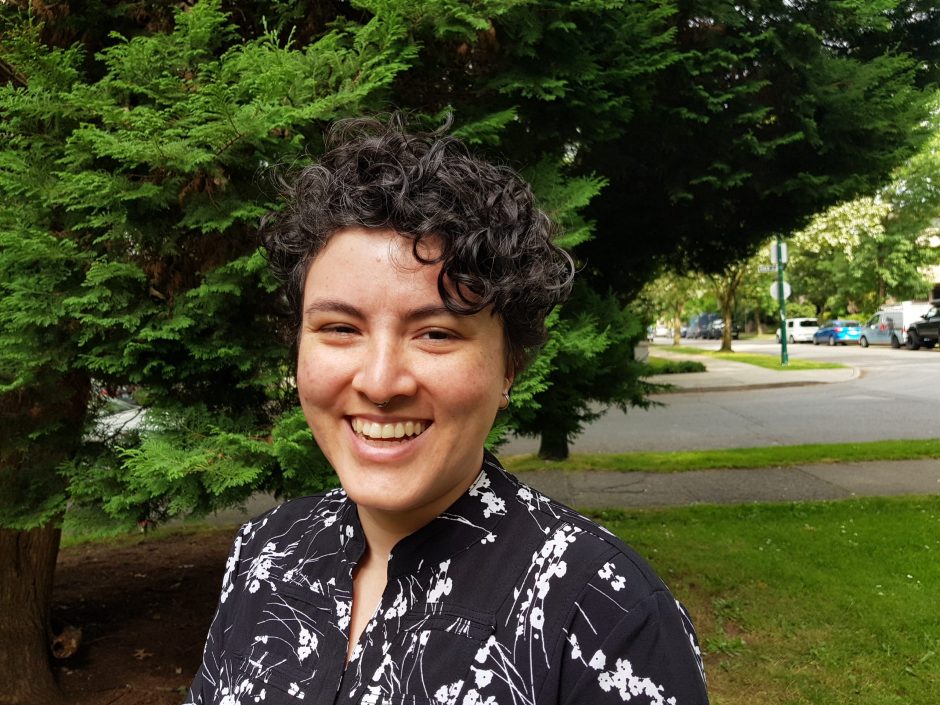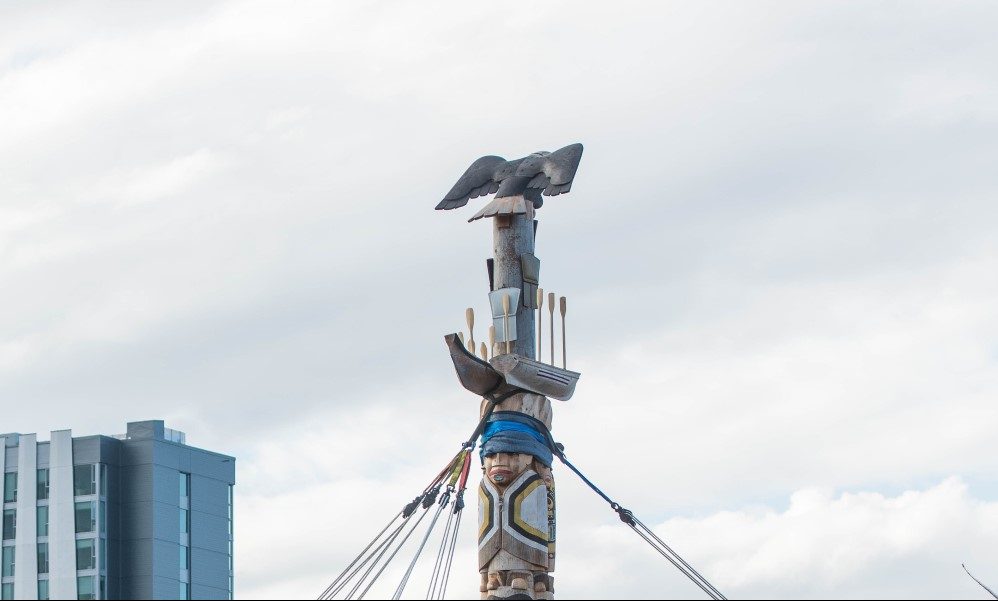Office of Indigenous
Strategic Initiatives
The Office of Indigenous Strategic Initiatives (OISI) was created
in February, 2021 to coordinate the implementation of UBC’s 2020 Indigenous Strategic Plan across UBC.
Part of an innovative, Indigenous-led and Indigenous human rights-based implementation structure, OISI provides guidance to Faculties, departments, operational units and student groups across UBC’s Vancouver and Okanagan campuses in their alignment with the eight goals and 43 actions of the ISP.
It also provides advice to UBC leadership on how best to improve the experiences of Indigenous students, faculty and staff across the University.
Our Team

Claire Sarson
Can you introduce yourself and tell us a bit about your background?
My name is Claire Sarson. I am of mixed European settler ancestry and was raised on unceded Kanaka Maoli and Musqueam lands. I finished my degree in Political Science and Canadian Studies at UBC in 2021 where I focused on Indigenous politics in Canada and global human rights. I began my career at UBC working in research for the Office of Regional and International Community Engagement and the Department of Political Science. I then moved on to work in data management and administration at the BC Children’s Hospital Foundation before returning to UBC to join the OISI team.
What is your role with OISI?
I began working with OISI as the Program Coordinator and now, as the Indigenous Strategic Programming Manager, I help support, deliver and develop programs and projects that guide the implementation of the ISP. I oversee ISP initiatives and the management of the Indigenous Strategic Initiatives (ISI) Fund. I provide strategic planning and oversight of the activities undertaken with respect to advancing the ISP. I also provide support as needed to the rest of the OISI team and associated ISP Guiding Network committees.
What inspires you in this work and what do you hope to achieve?
Highly valued in my family, where nearly everyone is the child or grandchild of an educator, public education was emphasized as an invaluable tool that must be open to change. Studying human rights at UBC helped me understand the relationship between public institutions and Indigenous human rights and the responsibilities of public institutions to renounce their status as cornerstones in the Canadian colonial project. The ISP provides an opportunity for UBC to advance Indigenous human rights in the higher education context.

Andrea Barragan Rivero
Can you introduce yourself and tell us a bit about your background?
My name is Andrea P. Barragán Rivero. I am an immigrant from Colombia, I grew up in Guane territory and then studied and worked in Muisca territory, where I completed a Bachelor in Audiovisual Media and Film Production. After working as a Script Supervisor in Bogota, I moved to Naarm (Melbourne), land of the Kulin Nation in Australia, where I gained a Master of Arts and Cultural Management at the University of Melbourne. Later, I moved to Canada and lived in Treaty 6 territory, but my tropical inner self pushed me toward warmer weather. I eventually moved to Vancouver, living and working in the unceded territory of the Squamish, Stó:lo and Tsleil-Waututh, Stz’uminus and Musqueam Nations.
I have experience in office administration, arts administration, customer service and supporting executive staff, with many transferable skills from my previous career in film.
What is your role with OISI?
As the Executive Coordinator, I am the primary contact for the executive team at OISI. I offer administrative support, manage scheduling and liaise with the University, Indigenous communities, organizations, various external agencies and stakeholders on behalf of the OISI.
What inspires you in this work and what do you hope to achieve?
I am passionate about accessibility and inclusion, guaranteeing human rights to minorities. As a queer, immigrant woman, who has had close experiences to declining mental health, neurodiversity and disability, I want to live in a society that is supportive and adequate so that everyone can live a good life. The implementation of the Indigenous Strategic Plan is a great path to start being accountable for actions that can be taken right here, right now, to start changing systemic racism and personal biases that perpetuate discrimination against Indigenous peoples; and to facilitate meaningful reconciliation.
Contact Us
To get involved in implementation of the Plan, or to share your implementation stories, please email us at oisi.admin@ubc.ca.
OISI invites UBC leadership, staff, faculty and students to join the ISP mailing list to receive news, updates and stories about the implementation of the Indigenous Strategic Plan.
We honour, celebrate and thank the xʷməθkʷəy̓ əm (Musqueam) and Syilx Okanagan peoples on whose territories the main campuses of the University of British Columbia have the privilege to be situated.
